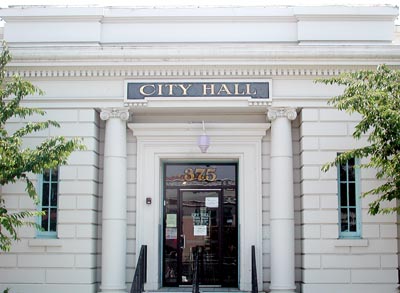Simply put: Councilman Doug Emerson should have known better.
Emerson in July 2011 accepted $4,650 from a solar company for a trip to China. CleanFocus Energy paid him for his expenses after he had spoken at a seminar about Hollister’s solar-powered wastewater treatment plant operated by another solar company, ClearSpot Energy, under a 30-year agreement signed in January 2010.
One of two ClearSpot founders, Claude Leglise, was asked by an acquaintance with the other solar business if a city official could talk about the partnership because the other firm, CleanFocus, had been seeking financial backing for a similar type of arrangement with a California municipality.
Emerson, a mayoral candidate, accepted the trip under agreed upon terms that included three days of reimbursement to the councilman and his wife for plane fare, lodging, taxicabs to and from the airport, visas and per diem for meals.
It turns out the reimbursement was classified as a gift under state Fair Political Practices Commission rules, which limit elected officials and candidates to a $420 limit annually from a single source. Violations can result in fines of up to $5,000, and Emerson is likely to face questions from the FPPC.
There were two major, obvious question marks that he should have grasped when he considered taking the money for his trip:
How will the public perceive the payment in light of ClearSpot’s referral and the city’s lucrative contract with the company to power the sewer plant – especially considering Emerson was the most outspoken, supportive council member for the multimillion-dollar deal?
And what does the law say regarding such reimbursements – especially considering elected officials are told again and again they must keep up on ethics rules and the fact that they go through required, regular training addressing such scenarios?
Emerson should not have needed to examine the law and take his consideration beyond logic, which says the ClearSpot connection to the arrangement was enough to seal the deal and deny the offer.
Beyond basic rationale, the law clearly addresses allowable travel reimbursements, guidelines that do not exempt Emerson from the $420 limit.
He either neglected to follow the rules or didn’t do enough homework until a Free Lance inquiry last week revealed the impropriety, which Emerson called an “honest mistake.”
The notion that Emerson somehow didn’t understand the law is no excuse. Complexity within state ethics rules is precisely why an FPPC spokeswoman underscored the importance that elected officials obtain advice from the commission prior to these types of trips.
Emerson either missed the red flags or ignored them. Either way, his decision reflected considerably poor judgment.









